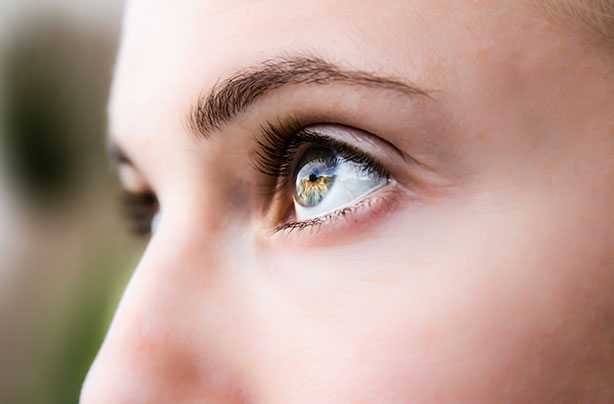Eye problems: How to protect your eyes and keep them healthy
We rely on our eyesight more than any other sense - but do you ever think about protecting yours? We asked an expert about how to keep your eyes in tip top condition...

Taking care of your eye health is one of the most important things you can do. We rely on our sight more than any other sense and yet many of us do little to protect our eyes and keep them healthy.
So what can you do to keep your eyes safe and prevent eye problems? We spoke to David Cartwright, Professional Services Director at Boots Opticians, who gave us his expert advice on what we can all do to help our eyesight...
1. Get regular eye tests
Most people don't have regular eye checks. Some of us might not have been to the opticians since we were kids.
David says: 'Everyone should have their eyes tested regularly, at least once every two years.
Eye diseases are usually painless and so you probably won't notice the symptoms if you have a condition.
A regular eye test will pick up most eye conditions early and the treatment will then be more effective. The more developed a condition becomes, the more damage is done to your eyes and this damage is often irreversible.
An eye test will also determine how quickly your eyesight is getting worse.
GoodtoKnow Newsletter
Parenting advice, hot topics, best buys and family finance tips delivered straight to your inbox.
An optician will never prescribe you glasses if you don't need them - what he can do, though, is show you the difference you will notice with and without glasses.'
2. Lose weight
The more overweight you are, the more likely you are to suffer from certain eye conditions. Obesity is a major factor in people who contract cataracts or a condition called macular degeneration.
Obesity is also linked to Type 2 diabetes, which in turn can lead to blindness - all in all a good reason to cut down your weight.
3. Improve your diet
Eating more fruit and veg isn't just good for your weight. There is evidence that eating brightly-coloured fruit and vegetables can protect your eyes.
David says: 'Think traffic lights and you'll be well on your way - many of these coloured foods are high in antioxidants which keep the retina healthy.
Fruit and veg such as sweetcorn, kale, peppers, mangoes and pomegranates are all high in vitamins A, C and E, which will help your eyes.
If you have a family history of eye problems, it could also be helpful to take specific eye supplements to guard against early onset.'
Try something like Visionace, which also acts as a daily multi-vitamin.
4. Stop smoking
Smoking has been linked to age-related macular degeneration. It increases the number of free radicals in the retina and this then deprives the eye cells of oxygen, which causes eye disease.
5. Wear sunglasses
We're not suggesting you turn into a pop star and always keep your shades on indoors, but the harmful UVA and UVB rays in sunlight may well be a factor in conditions such as cataracts.
David says: 'Even if you already wear glasses or contact lenses, it is possible to stop your eyesight getting worse by making sure you have a UV filter built into your specs.
If you don't need specs, wearing sunglasses is the easiest way to reduce the harmful UV light getting to your eyes.
Day-to-day, there's little harm from light in the UK, but if you go on holiday to sunny spots, or enjoy skiing, you need to beware of the much stronger and often harsher light.'
David explains the truths behind some of the things your mum used to tell you about your eyes.
Myth: Watching too much TV hurts your eyes
Fact: This is simply not true. Sitting too close to a TV, computer screen or reading for too long will not harm your eyes.
It may make them feel tired, but no matter what your mum may have told you, it won't actually damage your eyes.
However, it's still important to take regular breaks from the screen simply to help you concentrate for longer.
Myth: Eye exercises can improve your vision
Fact: This is false! It is simply not possible to improve your vision through exercise. You may stop yourself feeling as tired, but you cannot better your eyesight.
Myth: Wearing someone else's glasses is bad for you
Fact: Once again, this is totally wrong. Your eyes will adjust to cope with someone else's prescription, but doing this won't cause them any damage.